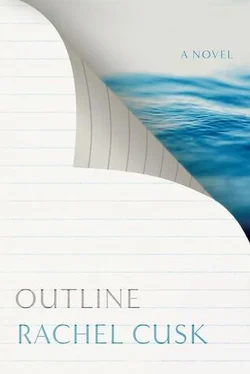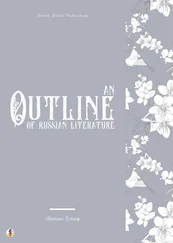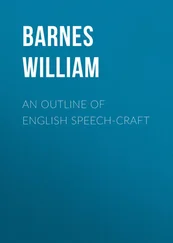I asked her whether she lived in Manchester, and she said no, she had just been up there to teach another course, and had had to fly straight from there to here. It was a bit exhausting but she needed the money. She had hardly done any writing lately — not that you got rich from writing plays, at least not the kind of plays she wrote. But something had happened to her writing. There had been — well, you’d call it an incident, and as a playwright she knew that the problem with incidents is that everything gets blamed on them: they become a premise towards which everything else is drawn, as though seeking an explanation of itself. It might be that this — problem would have occurred anyway. She didn’t know.
I asked her what the problem was.
‘I call it summing up,’ she said with a cheerful squawk. Whenever she conceived of a new piece of work, before she had got very far she would find herself summing it up. Often it only took one word: tension, for instance, or mother-in-law, though strictly speaking that was three. As soon as something was summed up, it was to all intents and purposes dead, a sitting duck, and she could go no further with it. Why go to the trouble to write a great long play about jealousy when jealousy just about summed it up? And it wasn’t only her own work — she found herself doing it to other people’s, and had discovered that even the masters, the works she had always revered, allowed themselves by and large to be summed up. Even Beckett, her god, had been destroyed by meaninglessness. She would feel the word start to rise, and she would try to hold it down but it kept coming, rising and rising until it had popped irreversibly into her head. And not just books either, it was starting to happen with people — she was having a drink with a friend the other night and she looked across the table and thought, friend, with the result that she strongly suspected their friendship was over.
She scraped her spoon around the bottom of the honey jar. She was aware, she said, that this was also a cultural malaise, but it had invaded her inner world to the extent that she herself felt summed up, and was beginning to question the point of continuing to exist day in and day out when Anne’s life just about covered it.
I asked her what the incident — if that was the word she had used — what the incident was that she had referred to earlier. She took the spoon out of her mouth.
‘I was mugged,’ she squawked. ‘Six months ago. Someone tried to kill me.’
I said that was awful.
‘That’s what people always say,’ she said.
She had by now finished the honey and was licking every last trace of it off the spoon. I asked whether I really couldn’t get her something else to eat, since she was obviously so hungry.
‘I’d better not,’ she said. ‘As I said, once I start I can’t stop.’
I suggested it might help if I gave her something defined, something limited whose ending was clear.
‘Maybe,’ she said doubtfully. ‘I don’t know.’
I opened the pink box Rosa had given me, which was sitting on the coffee table between us, and offered her the single cake that remained. She took it and held it in her hand.
‘Thank you,’ she said.
One consequence of the incident, she said, was that she had lost the ability to eat in a normal way — whatever that was. She supposed she must have known how to do it once, because she had got this far without ever really thinking about eating, but she couldn’t for the life of her remember how she had, or what she had eaten for all those years. She used to be married, she said, to a man who was a very good cook and who possessed generally an almost fanatical sense of order around food. The last time she had seen him, which was several months ago, he had suggested they go for lunch. He had chosen a fashionable restaurant, of a kind she no longer went to, for reasons of economy and also, she supposed, because she now lacked the necessary sense of entitlement, in that she felt she had no right to be in such places any more. She had sat and watched him order and then slowly consume a starter, main course and dessert, each dish very moderate and in its own way perfect — the starter had been oysters and the dessert, if she recalled, had been fresh strawberries with a dash of cream — followed by a small espresso which he had downed in one swallow. She herself had ordered a side salad. Afterwards, when they had parted, she had passed a donut shop and had gone inside and bought four donuts, which she consumed one after the other standing in the street.
‘I’ve never told anyone that before,’ she said, raising Rosa’s cake to her lips and taking a bite.
Watching him eat the food, she continued, she had experienced two feelings that seemed directly to contradict one another. The first was longing; and the second was nausea. She both wanted and didn’t want whatever it was that sight — the sight of him eating — had invoked. The longing was easy enough to understand: it was what the Greeks called nostos, a word we translated as ‘homesickness’, though she had never liked that word. It seemed very English to try to pass off an emotional state as a sort of stomach bug. But that day she had realised that homesickness just about summed it up.
Her ex-husband had not been much help after the incident. They were no longer married, so she supposed she had been wrong to expect it, but all the same it had surprised her. When it happened, he was the first person she thought to call — out of habit, it might seem, but if she were honest she still regarded them as being bound in some indissoluble sense. Yet it was immediately apparent, when she spoke to him on the phone that day, that he did not share her view. He was polite, distant and curt while she was angry, sobbing and hysterical: polar opposites was the phrase that had, during those difficult moments, popped into her mind.
It was through other people, some of them strangers, that the incident had to be unravelled: policemen, counsellors, one or two good friends. But it had been a descent into chaos, a whirling realm of non-meaning, in which the absence of her husband had felt like the absence of a magnetic centre so that without it nothing made any sense at all. The polarisation of man and woman was a structure, a form: she had only felt it once it was gone, and it almost seemed as though the collapse of that structure, that equipoise, was responsible for the extremity that followed it. Her abandonment by one man, in other words, led directly to her attack by another, until the two things — the presence of the incident and the absence of her husband — came almost to seem like one. She had imagined the end of a marriage, she said, to be a slow disentangling of its meanings, a long and painful reinterpretation, but in her case it hadn’t been like that at all. At the time, he had got rid of her so efficiently and so suavely that she had felt almost reassured even as she was being left behind. He had perched beside her in his suit on a counsellor’s sofa for the mandatory number of sessions, looking discreetly at his watch and occasionally assuring everybody that he wanted only what was fair, but he might as well have sent along a cardboard cut-out of himself, for he was clearly elsewhere in his mind, galloping towards pastures new. Far from a reinterpretation, their ending had been virtually wordless. Shortly afterwards he had set up house with the daughter of an aristocrat — the Earl of somewhere — who was now pregnant with their first child.
In a way, she accepted that he was only leaving her as he had found her a decade earlier, a penniless playwright with some actor friends and a large and worthless collection of second-hand books. Yet she was not, she had soon discovered, that person any more: she had become, through him, someone else. In a sense he had created her, and when she phoned him that day of the incident, she was, she supposed, referring herself back to him as his creation. Her links to the life before him had been completely severed — that person no longer existed, and so when the incident occurred it had been two kinds of crisis, one of which was a crisis of identity. She didn’t know, in other words, quite who it had happened to. This question of adaptation, therefore, might be said to be at the forefront of her mind. She was like someone who had forgotten their native language, an idea that likewise has always fascinated her. She found, after the incident, that she lacked what might be called a vocabulary, a native language of self: words, as the phrase goes, failed her for the first time in her life. She couldn’t describe what had happened, to herself or to other people. She talked about it, sure enough, talked about it incessantly — but in all her talk the thing itself remained untouched, shrouded and mysterious, inaccessible.
Читать дальше












